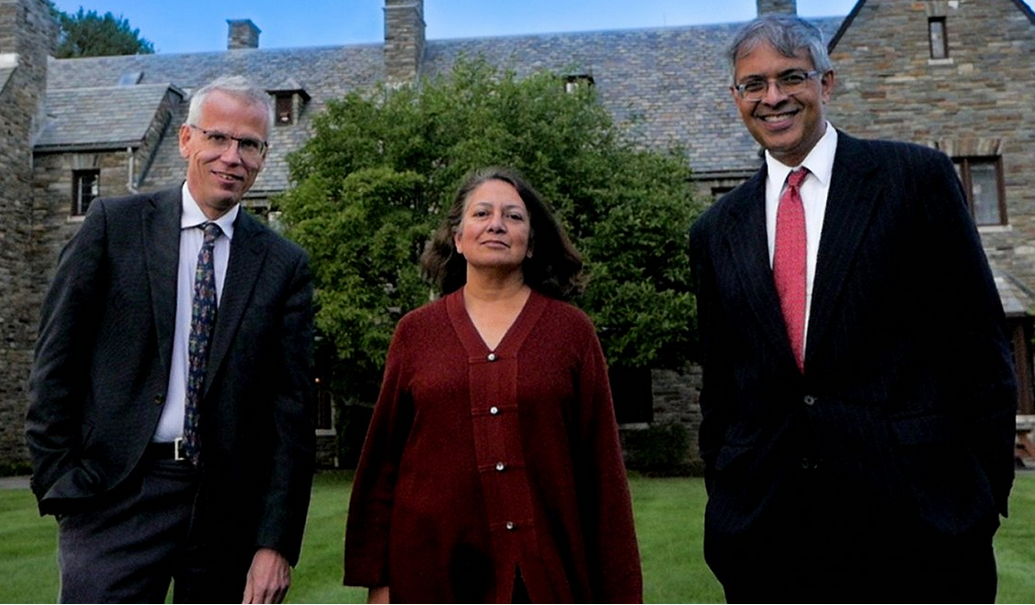Great Barrington Declaration: One Year Later

The Great Barrington Declaration (GBD), authored by Sunetra Gupta, University of Oxford, Martin Kulldorff, Harvard University, and Prof. Jay Bhattacharya, Stanford Medical School, is marking its one-year anniversary this week.
The Declaration is built around the concept of focused protection – using resources to protect people in the society most at-risk from COVID while avoiding the large-scale social and economic consequences of “one-size-fits-all” lockdowns.
The anniversary is an excellent opportunity to reflect on the devastating health and societal consequences of the lockdown and COVID-restriction policy, followed by so many governments worldwide. The principles underlying the GBD are relevant today as the world transitions toward a saner, more rational, more sustainable, and more humane COVID policy.
A year ago, on October 4, 2020, the Great Barrington Declaration was released for support signatures to the public. The release of the GBD shattered the notion that there was a scientific consensus in favor of lockdowns. Hundreds of thousands of people have signed the GBD, including tens of thousands of medical doctors and scientists.
The GBD advocates understanding that large-scale containment of a highly contagious respiratory virus is impossible, and society should instead use its resources to protect those most at risk. Hospitalizations and deaths overwhelmingly occur in the population over the age of 65 – so much that the risk of death after infection is thousands of times greater than for school children, the vast majority of whom have mild cases of COVID if infected, with full recovery.
Once we recalibrate our viewpoint and accept the scientific fact that COVID is indeed an age-stratified disease, we can use our resources far more wisely. A more level-headed strategy would emphasize keeping schools open and letting younger members of our society – who have no voice in the concerns of the day – get back to their lives. For them, the COVID restrictions cause many more problems than COVID itself. Such a strategy would help minorities and the poor, who have also been silenced in the current debate. They have suffered far more adverse outcomes from COVID and the lockdowns than the laptop class of professionals who stayed at home without financial hardship during the pandemic.
A rational COVID strategy would also significantly improve the mental health of all people, everywhere. The lockdown strategy has explicitly induced fear of COVID in the population, without regard to the greater risk older vulnerable populations face. This fear has led to elevated levels of depression, anxiety, and suicidal ideation. The GBD strategy helps the public accurately contextualize the risk from COVID, putting in context against other risks and accurately conveying the sharp age (and selected other chronic diseases) differences in risk posed by COVID. The GBD strategy will help people explore how to learn to live with COVID without fear as it becomes endemic in our society.
None of the lockdown policies and COVID restrictions, including many of the highly intrusive Non-Pharmaceutical Interventions (NPIs), promote public health. In the US, we have seen the CDC and Dr. Anthony Fauci have supplied a narrative of constantly changing positions (on masks, for instance), erroneous information (such as the downplaying of immunity after COVID recovery). Their directives have served to undermine trust in public health when it is most needed and have failed to protect the people that need the most protection during this difficult time.
By narrowing society’s focus to a single respiratory virus, this policy has led to catastrophic collateral harms to other aspects of population health, including harms to cancer and heart disease prevention and treatment in developed countries and dire food insecurity and poverty in poorer countries. Public health authorities have worked with the press and big tech to minimize the miseries that come from the various NPIs in the public’s mind, hiding them in a media storm of confusion.
We must bring this sad state of government-promoted mandates to an end. And we must follow the wisdom the field of public health has acquired over a hundred years about what works, what protects people from both COVID and other health risks, and what protects the social fabric of our larger human experience.
The three primary authors of the GBD are happy to make themselves available this week to the press to discuss the GBD’s anniversary and the continuing importance of the GBD’s principles to reform COVID policy and end the epidemic without further collateral damage from lockdowns, NPIs, and ongoing COVID restrictions.
Email contact: [email protected]